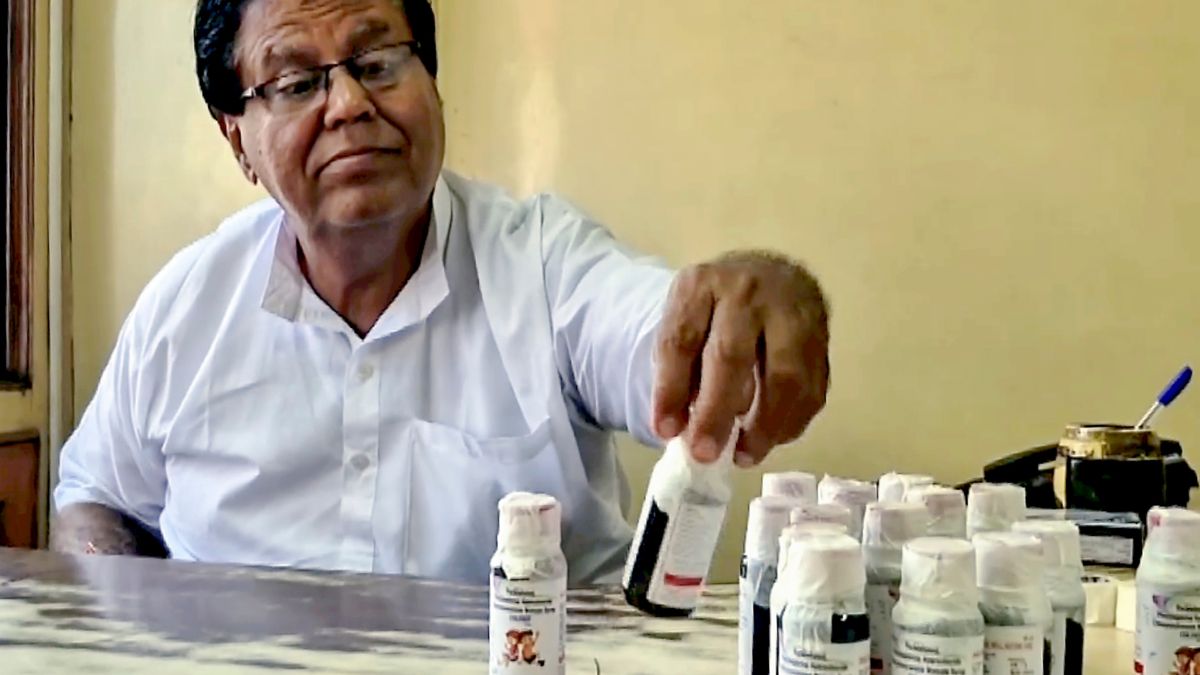The manufacturer of the Coldrif cough syrup has come under fire after the adulterated medicine was linked to over a dozen children’s deaths in Madhya Pradesh and Rajasthan. At least 14 children died in MP’s Chhindwara district due to suspected renal failure after taking the “toxic” cough syrup.
Raids conducted by Tamil Nadu’s Drugs Control Department at Sresan Pharmaceuticals in Kancheepuram, the manufacturing site of the cough syrup, on October 1 and 2 revealed certain lapses and contamination of the medicine. Following this, the Union Health Ministry has called for risk-based inspection at the manufacturing premises of 19 drugs across six states.
“This move will help finding out the gaps leading to quality failure of drug samples and suggest process improvement to avoid such incidences in future,” the Ministry said in a statement on October 4.
Let’s take a closer look.
Over 300 violations at Coldrif manufacturing factory
A report by the Tamil Nadu government exposed gross violations and unhygienic practices at Sresan Pharmaceuticals, based in Kancheepuram.
The Tamil Nadu Drugs Control Department, which carried out the inspection, found more than 350 lapses in the manufacturing process, stating that the Coldrif cough syrup was being produced under unhygienic conditions, India Today reported.
There were no air handling units (AHUs), while the factory had poor ventilation, and damaged or rusted equipment.
As per NDTV, vats of chemicals were being heated on gas stoves, plastic pipes were leaking residue and untrained workers were mixing ingredients without wearing gloves or masks.
Impact Shorts
More ShortsThe 26-page Tamil Nadu government report found that plant layout and design of the manufacturing unit also led to contamination risks.
There was no Quality Assurance department and a lack of qualified chemists to oversee production. There were also no standard operating procedures (SOPs) in place to recall products or handle quality failures.
“The firm has not provided any gowning procedure, GMP drains, purified water system, pest control, or cleaning mechanism,” India Today reported, citing the government findings.
The sources of the water used for producing the medicine were unknown and not tested for purity.
According to officials, the manufacturing unit used plastic pipes to transfer liquid formulations, lacked a filtration system, and discarded chemical effluents directly into general drains. “Purified water tanks used in critical manufacturing operations were found in unhygienic condition,” the report said.
Products were kept in corridors and areas with non-functional AHUs, exposing them to dust and cross-contamination.
The inspectors found 39 “critical” and 325 “major” violations under the Drugs and Cosmetics Act, 1940.
ALSO READ: Why Coldrif cough syrup, linked to over dozen children deaths in MP, Rajasthan, is dangerous
Illegal chemicals
According to the report’s findings, Sresan Pharmaceuticals had purchased 50 kilogrammes of propylene glycol, without testing for contaminants like diethylene glycol (DEG) or ethylene glycol (EG).
Diethylene glycol and ethylene glycol are industrial solvents used in antifreeze, paints, brake fluids, and plastics. They could be used by pharma companies as an alternative to non-toxic solvents such as glycerine or propylene glycol (used in food and cosmetics) to cut costs.
Traces of diethylene glycol were found in the cough syrup. The World Health Organisation (WHO) has repeatedly warned of cough syrups contaminated with DEG and EG. These adulterants have been linked to more than 300 child deaths globally since 2022.
DEG was found in high concentration when biopsies were conducted on the kidneys of the children who died after taking contaminated cough syrups, as per NDTV.
The Coldrif Syrup Batch SR-13, consumed by the victims in Chhindwara, contained 48.6 per cent of diethylene glycol, much beyond the permissible limit.
Sketchy procurement
The industrial-grade chemicals used to manufacture Coldrif were purchased in cash and via Google Pay from local dealers Sunrise Biotech and Pandia Chemicals in Chennai, as per the October 3 report by the Tamil Nadu Drugs Control Directorate.
The company procured propylene glycol from local chemical traders and paint industry dealers instead of certified pharmaceutical suppliers, without any tests for deadly contaminants.
The factory had no pharmacovigilance system, with no one tracking adverse reactions or recalls.
With inputs from agencies
)